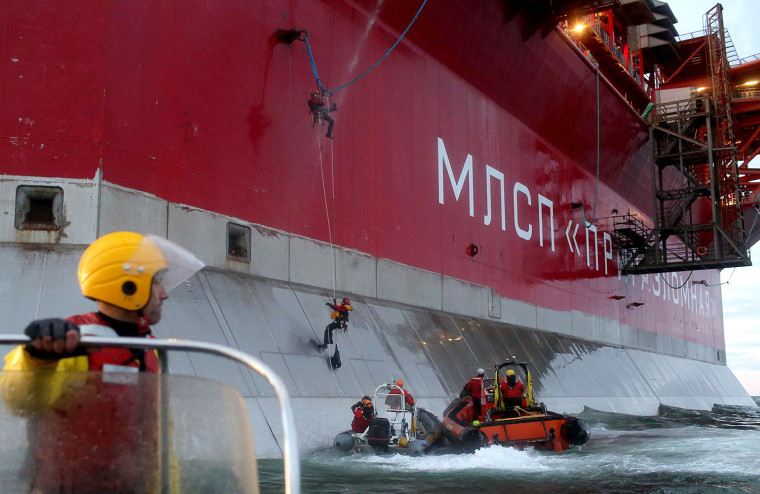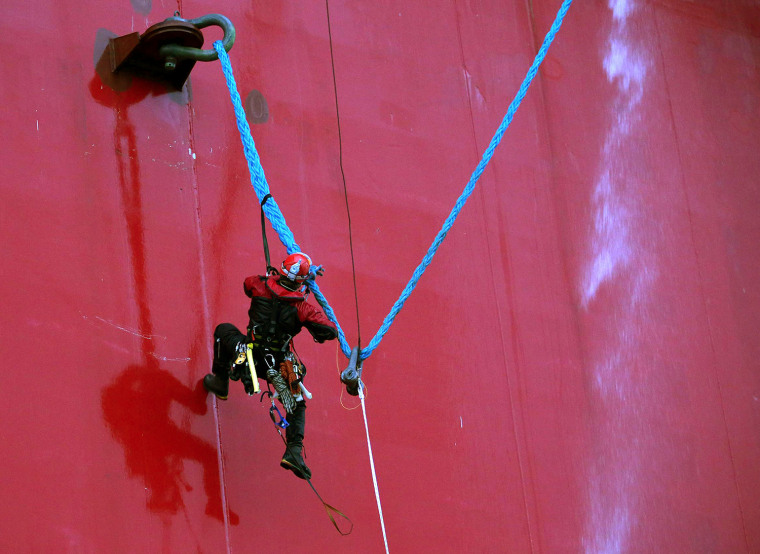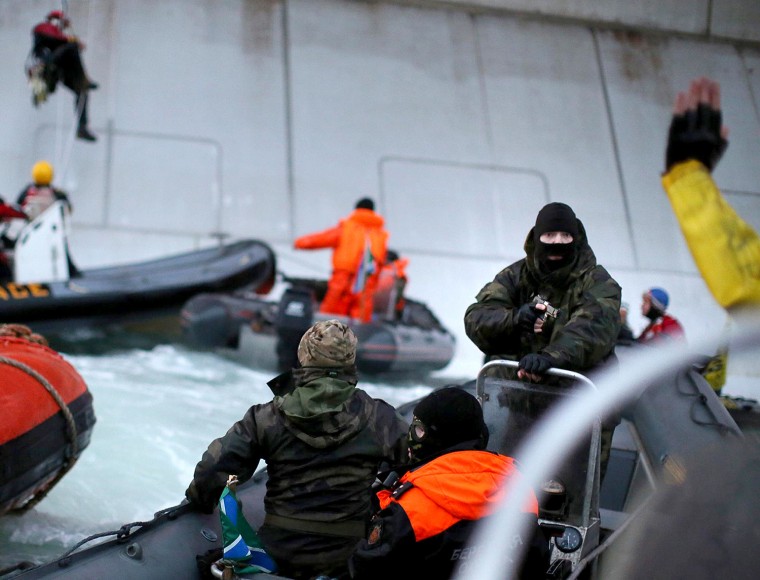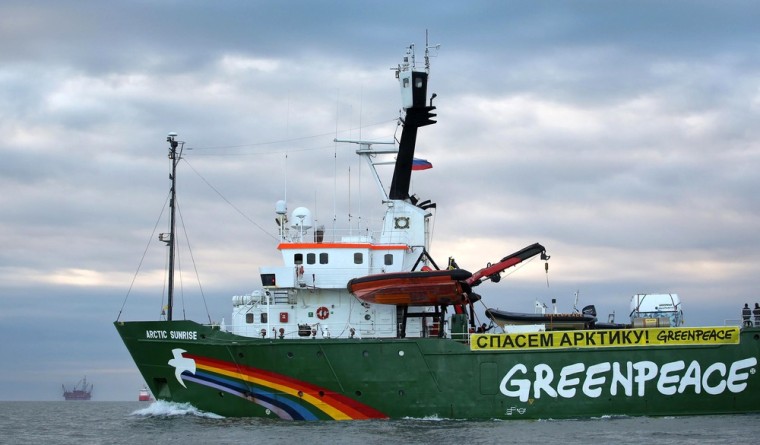
MOSCOW -- The Russian Coast Guard has seized a Greenpeace ship, holding about 30 activists at gunpoint and towing it to the nearest port, following a protest against Arctic oil drilling.
Activists from the environmental group scaled the side of the Prirazlomnaya oil platform to try to prevent it from drilling earlier in the week.
Greenpeace said armed security services seized the ship Thursday evening.
“This is pretty terrifying. Loud banging. Screaming in Russian. They're still trying to kick in the door,” activists wrote on Twitter. Greenpeace International said Friday that they have had no contact with the ship since Thursday.
The activists said they believed the armed men were members of Russia’s internal security service, the FSB, the main successor agency to the Soviet-era KGB.

The environmentalists say the oil drilling threatens the fragile Arctic environment – a charge Moscow denies.
This is the second consecutive year that Greenpeace activists have staged an action against the world’s first Arctic off-shore oil rig, owned by Russia’s state-controlled oil giant Gazprom.
The project is a sensitive one in a country that has made tapping the region's resources a priority to drive the economy.
Putin’s grand plans
Russia’s President Vladimir Putin has often spoken about grand plans in the Arctic region – particularly the strategic gas fields of the north.
The battle for one of the world’s most inhospitable regions is something that was left over from Stalin’s times, when the Russian dictator industrialized the north, often through the use of political prisoners.
“There’s an element of a dream and national identity in the Arctic – and this can be used,” says Pavel Baev of the International Peace Research Institute, Oslo. “It has to do with a personal interest of Putin,” he added.

Earlier this week, Putin announced that an old Soviet military base would be re-opened in the north of the country. It would play an important role in securing the Northern Sea Route, which is now open longer each year as global warming has increased the melting of ice, making the passage navigable.
“Our troops left there in 1993, and yet it is a very important location in the Arctic Ocean,” Putin said, on Monday according to Reuters.
Putin’s Arctic ambitions are not new. In 2007, two Russian mini-submarines plunged down to the seabed of the Lomonosov Ridge, which Russia claims is an extension of Russian continental shelf. A titanium Russian flag was planted on the sea bed – a gesture that symbolized Russia’s intentions. Now, however, there is something to protect – the Northern Sea Route.
Russia’s economy relies heavily on oil and gas prices, but reserves are depleting. “The easy oil has been drilled and projects that remain are extremely hostile,” said Eric Kraus, an independent asset manager.
According to the World Bank’s analyst Sergei Ulatov, Russia’s budget is made of 50 percent gas revenues. But according to the World Bank, Russia is still facing challenges in modernizing and diversifying its economy.

The Prirazlomnaya oil field where the off-shore platform is placed, is thought to hold 526 million barrels of oil.
‘Terrorist’ charges
Meantime, a Russian security services official said Friday that the charges against the Greenpeace activists may include terrorism – a charge that carries a hefty charge of up to 10 years in prison.
Of course, Greenpeace disputes the charge.
“The real threat to the Russian Arctic comes not from the crew of the Arctic Sunrise but from Gazprom, one of the most reckless oil companies in the world today,” said Ben Ayliffe, head of Greenpeace International’s Arctic oil campaign, in a press release Friday.
The Associated Press and Reuters contributed to this report.
Related